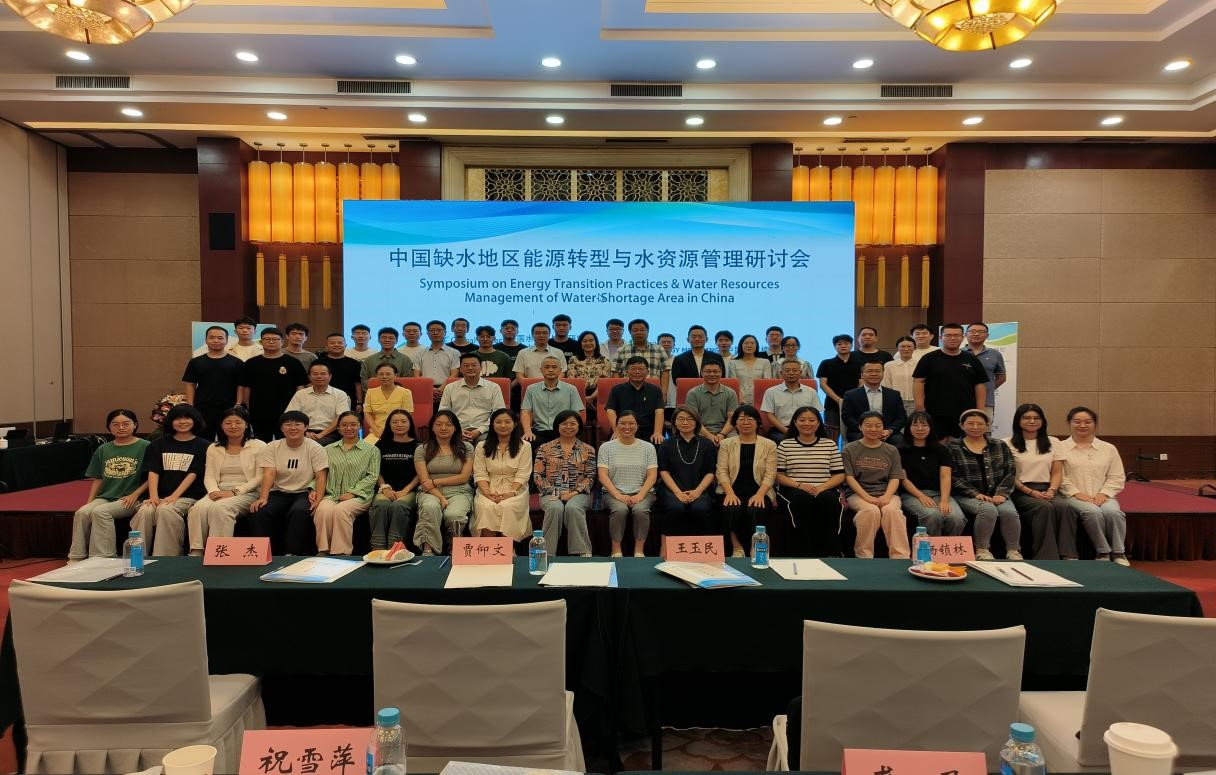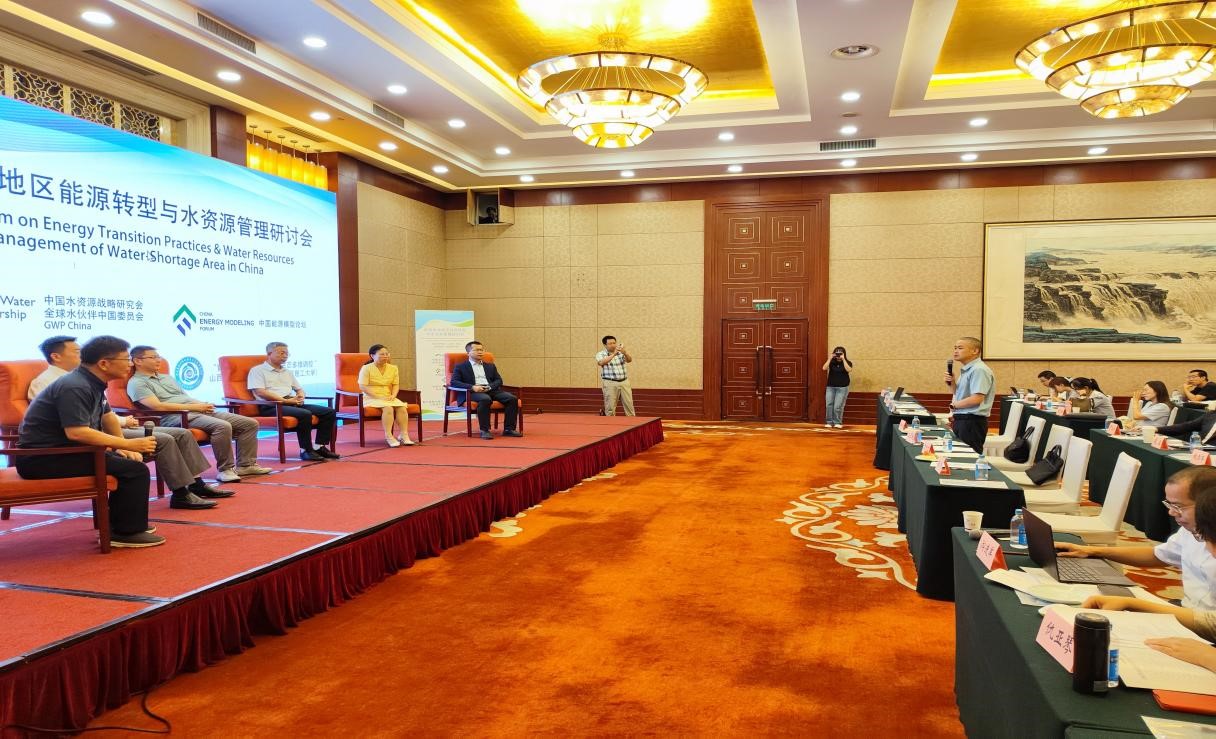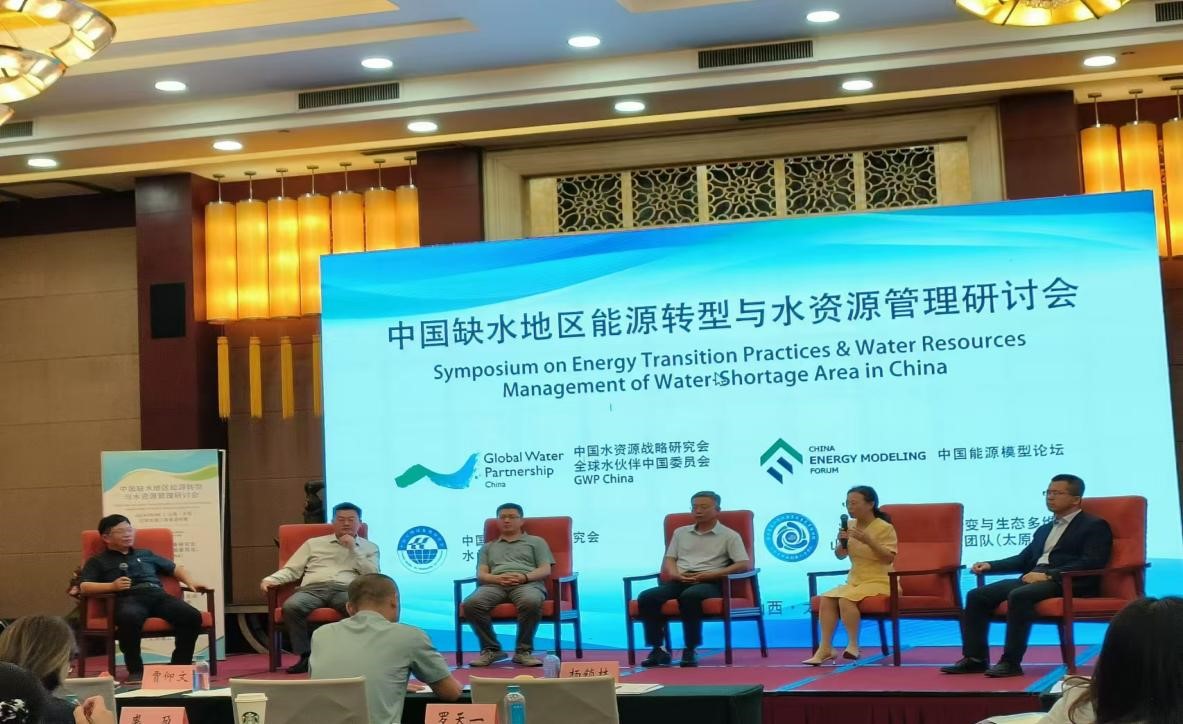
Group Photo
The gathering congregated a formidable assemblage of experts, academics and industry stalwarts to delve into the pressing concerns of energy transition and water resource management in arid regions, ushering in a fresh era of collaborative endeavors in the network of GWP China.
Structured into keynote presentations and panel discussions, the conference showcased a myriad of perspectives. Among the esteemed presenters were Zhang Jie, Vice President of the China Investment Association's Energy Investment Committee, who illuminated "Zero-carbon China Boosts Desert Water Networks"; Cong Jianhui, Professor at Shanxi University, delving into "Research on Shanxi's Energy Transition under the Constraints of Water Resources and Dual Carbon Goals"; Hao Chunfeng, Senior Engineer at the China Institute of Water Resources and Hydropower Research(IWHR), exploring "Research on the Water Resource Impacts and Constraints throughout the Full Lifecycle of Coal"; and Zhao Xuehua, Professor at Taiyuan University of Technology, addressing "Research on Regional Water Resources Collaborative Allocation from a Systematic Governance Perspective."
You Jinjun Opened the Conference
Opening the event, You Jinjun, GWP China's TEC member and Senior Engineer of IWHR, underscored the paramount significance of water resources and energy in underpinning socioeconomic progress. "We are facing the challenges posed by global change and resource scarcity," said Prof You. He emphasized the imperative of developing clean, efficient, and sustainable energy solutions alongside scientifically grounded and pragmatic water resource management strategies.
Wang Yumin, Deputy Division Director of Shanxi Province's Water Resources Department, pointed the global pressures surrounding energy transition and water scarcity, highlighting Shanxi's unique position on the Loess Plateau, straddling the Yellow and Haihe River basins, where coal abundance juxtaposes with water poverty. He underscored the formidable tasks ahead in advancing energy transformation and water resource management, expressing hope that the conference would foster technological advancements to support future water management endeavors and propel high-quality development.
Zhang Jie's keynote address illuminated the trajectory of China's new energy strategy system, anchored by the "3060" targets, emphasizing the urgency and necessity of energy transformation, particularly in alleviating water scarcity through the construction of new energy bases.
Professor Cong Jianhui elaborated on Shanxi's energy transition in the context of water constraints and dual carbon goals, analyzing the implications of these goals on energy transition pathways, advocating for a holistic approach that accounts for water limitations. He weighed various integration strategies for traditional and renewable energy sources, conducting cost-benefit analyses to inform decision-making.
Hao Chunfeng presented findings from a comprehensive study on the lifecycle impacts of coal on water resources, examining mining, processing, and utilization, and advocating measures like enhancing mine water control at source and optimizing its utilization. This research offers a solid foundation for decision-making in balancing coal and water resource development.
Professor Zhao Xuehua addressed regional water resource allocation, proposing a two-tiered allocation model and demonstrating its application in Taiyuan City. Her work underscores the potential of systematic governance and dynamic collaboration to optimize water supply and demand, enhancing both economic and social welfare.
Panel discussion, moderated by GWP China's Regional Coordinator Jia Yangwen, saw lively debates on advancing energy transformation and water resource management strategies, emphasizing the pivotal role of policy support and market mechanisms. A collective understanding emerged among participants.
In closing, Wang Yumin reiterated the complex and systemic nature of energy transformation and water resource management, underscoring the need for cross-departmental, interdisciplinary, and value chain-wide collaboration. He exhorted continued cooperation and intellectual contributions from experts to propel progress in these vital areas of China's water-scarce regions.
The conference concluded on a high note, fostering valuable insights and experiences for China's energy transformation and water resource management endeavors in arid regions, while fostering stronger ties among GWP China's stakeholders.
